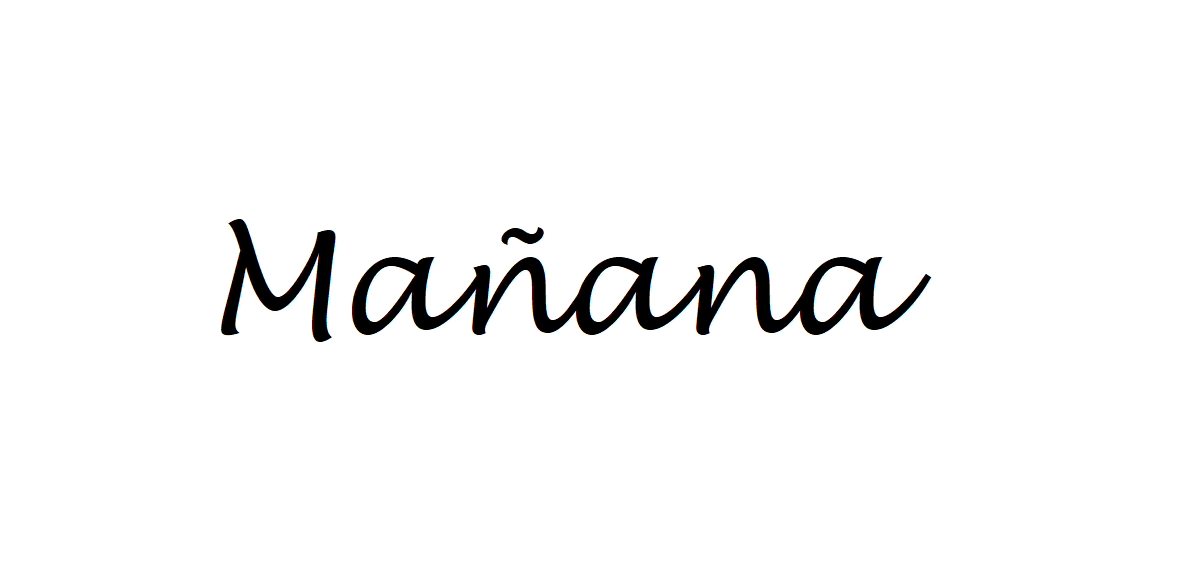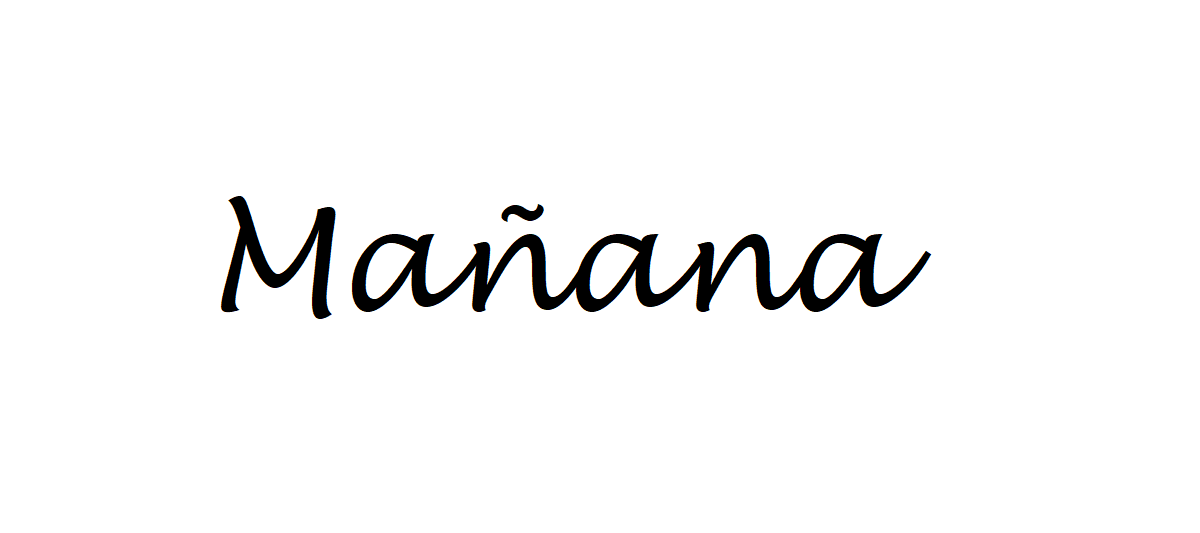mañana – It’s important to know the days of the week as well as more commonly used words like yesterday, today, and tomorrow. If you are traveling and need more information on flights, events, etc…you won’t understand what they are telling you unless you have a grasp on these phrases. You may even find yourself saying “see you tomorrow” to friends or colleagues.

Examples of how to say Tomorrow in Spanish
1. See you tomorrow – Nos vemos mañana
2. Goodbye and see you tomorrow – Adios y hasta mañana
3. I’ll see you tomorrow – Te veré mañana
4. Tomorrow is Thursday – Mañana es jueves
5. I need to book a flight for tomorrow. – Necesito reservar un vuelo para mañana.
6. Tomorrow is a Spanish holiday – Mañana es fiesta española
Other Ways to Say Tomorrow in Spanish
Más tarde – This phrase translates literally as “later” but can also be used to refer to tomorrow when talking about future events.
Amanecer – This phrase translates literally as “dawn”, however it can be used colloquially to mean “tomorrow” when referring to a specific day on the calendar or something that will happen soon.
Pasado mañana – Literally meaning “the day after tomorrow”, this phrase is often shortened simply to pasado which still has its original meaning intact.
Al día siguiente – Another way of saying “the next day”, this phrase implies that whatever happens will occur not only tomorrow but also the following day too.
Futuro próximo – Translating directly into English as “near future”, this term refers specifically to what lies ahead and could include anything from activities planned for later today up until sometime within the next few weeks or months (depending on context).
En un futuro cercano – A slightly more formal version of futuro próximo, this expression refers specifically to plans made for somewhere between now and sometime within a short period of time (again depending on context).
Después de hoy/mañana– Meaning either “after today/tomorrow” or simply translating into English as “afterwards”, these two phrases imply that whatever event takes place will occur at some point beyond what was mentioned previously (in terms of days).
El otro día– Roughly translating into English as ‘the other day’, el otro día usually means sometime shortly after today with an emphasis placed on how close together two events may be occurring relative each other.
En breve- When spoken casually among friends and family members alike, en breve typically means either very soon or even possibly by tomorrow depending on context; however if said formally then its literal translation remains intact which would be roughly equivalent to saying something like ‘in a short amount of time’.
Situations on when to use best term
Mañana is used to refer to any future day and can also mean later today if it’s late in the evening. For example, one might say “Voy a ir al cine mañana” (I’m going to go to the movies tomorrow). This phrase implies that you are planning on doing something tomorrow rather than today or some other time.
You could also use this phrase when talking about plans with someone else by saying “¿Quieres ir al cine mañana?” (Do you want to go to the movies tomorrow?). Another common way people use “mañana” is when they are trying to procrastinate and put off something until later. For instance, one might say “Lo haré mañana” (I’ll do it tomorrow) when asked about an assignment due soon but not wanting to start working on it yet.
Someone might ask another person if they would like help with something but get a response of “Mañana estaré mejor preparado” meaning I will be better prepared tomorrow instead of now.
Lastly using “mañana” can imply urgency or importance as well because it suggests that whatever needs done should happen soon rather than at some point far off into the future. For example, if someone was trying desperately find something before their flight leaves then they may say “Tengo que encontrarlo antes de mañana”. This means I have to find it before tomorrow and shows how certain situations call for immediate attention even though what needs done may still technically be considered part of ‘tomorrow’.
Example Sentences
1. I’m going to the store tomorrow. – Mañana voy al supermercado
2. We will have a meeting tomorrow morning. – Tenemos una reunión mañana por la mañana
3. Tomorrow is another day to start fresh – Mañana es otro día para empezar de nuevo
4. See you again tomorrow, my friend – Nos vemos otra vez mañana, amigo mío
5. What are your plans for tomorrow? – Cuáles son tus planes para mañana
6. Tomorrow we will celebrate our success – Mañana celebraremos nuestro éxito
7. Are you free tomorrow evening? – Estás libre esta noche
8. Don’t forget about our appointment tomorrow – No te olvides de nuestra cita de mañana
9. Let’s plan something for tomorrow night – Planeemos algo para esta noche
10. I’ll see you again tomorrow afternoon – Te veré otra vez en la tarde de mañan


 Terwilliger Hot Springs – Oregon
Terwilliger Hot Springs – Oregon